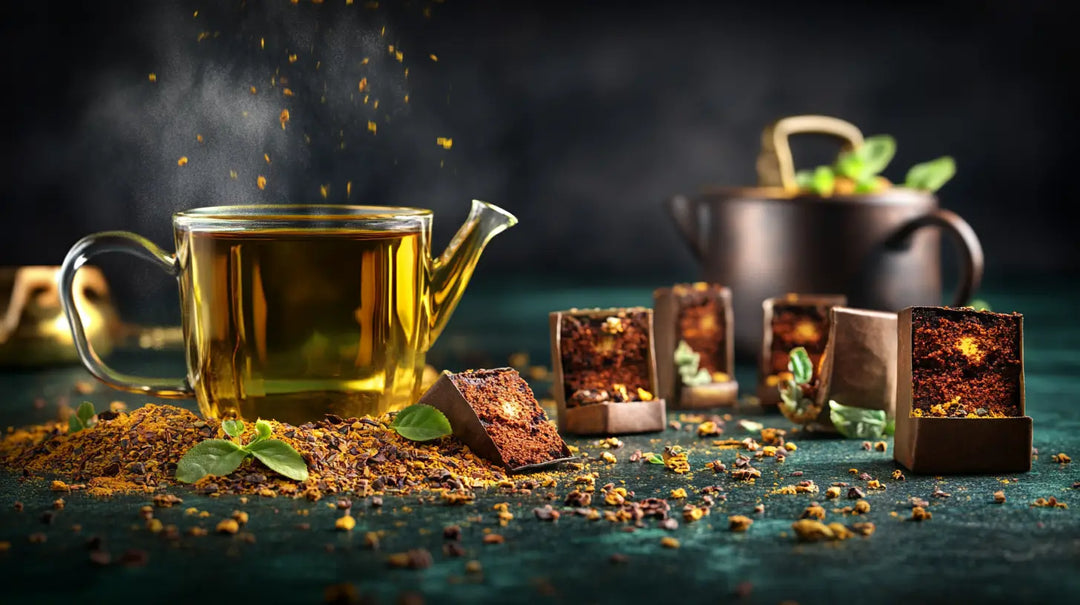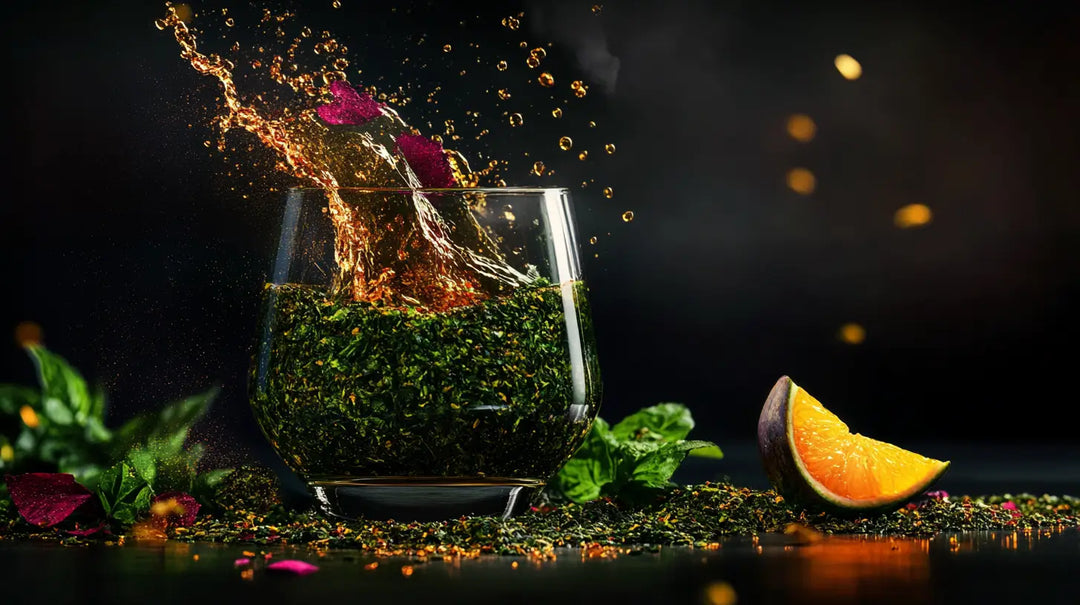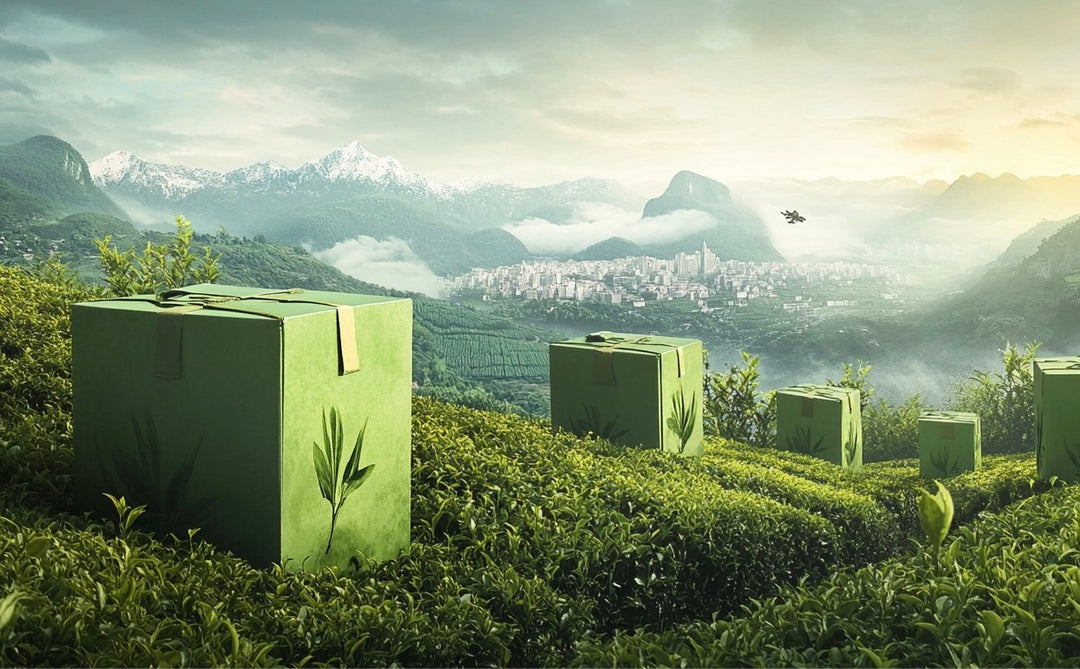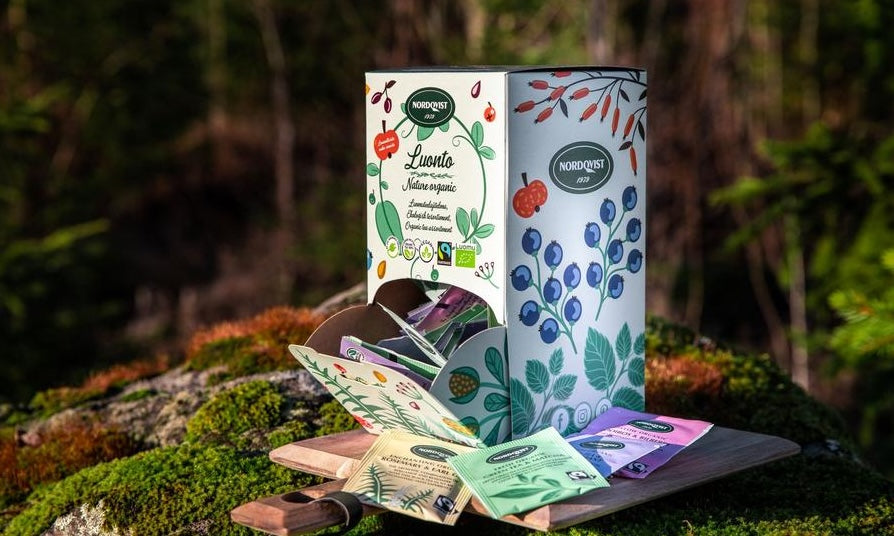Caffeine and tannin in cold and hot tea

Caffeine
Everyone is familiar with the effects of caffeine: it stimulates and invigorates. Indeed, caffeine is a natural stimulant found in most plants used in beverages, such as coffee, tea and cocoa.
The amount of caffeine in tea varies depending on the type of tea, the way it is grown and how it is produced. For example, black teas and green matcha tea contain significantly more caffeine than other teas. You can also influence the amount of caffeine you add to your tea at the point when you start making a cup of tea
Typically, tea contains between 6 and 28 milligrams of caffeine per decilitre. By varying the temperature and brewing time, the caffeine content of the tea will change. The most caffeine is obtained by steeping tea in hot water for a long time. The heat releases caffeine, and the longer the tea stays warm, the longer it takes for the caffeine to be released.
Extracting tea with cold water does not release as much caffeine into the tea. The amount can drop by a third or even a half compared to warm extracted tea. This means about two to twenty milligrams per decilitre.
If you want to drink your favourite tea in the morning and evening, you can easily adjust the amount of caffeine: hot in the morning and cold in the evening. Our Hot'n'Cold teas, which can be brewed quickly with both hot and cold water, are the best for this purpose.
Tannin
Tannin is the first tannin that comes to mind in wine, but it's also found in tea. Tannin is a phenolic extract found in many plants such as grapes, nuts and tea leaves. The compound is carried by tea leaves all the way to the tea we drink. So it's no wonder if you taste a hint of wine-like dryness in the tea.
Tannins are present in a different form in growing and unripe tea leaves, in the form of catechins. When the leaves are heated, for example in hot water, the tannins come out. This is not necessarily a bad thing, as tannins are one of the antioxidants that contribute to the body's defences.
Tannins taste not only dry in the mouth, but also bitter. You may notice it as a tightening sensation in your gums. In hot tea, the tannins are more delicate and pronounced than in cold-pressed tea.
Cold extraction therefore gives the tea a milder flavour. See our guide to the perfect Cold Brew tea.









